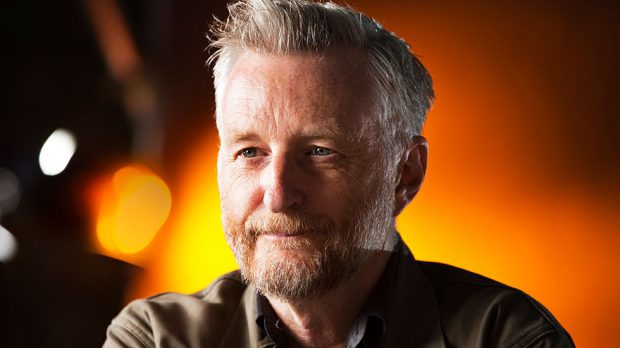
Billy Bragg
Why We Build The Wall
Cooking Vinyl
Why We Build The Wall is the latest release from Billy Bragg, following alt country track The King and the Sunny Day Flood released earlier this year, an ode to the fight on global warming. Why We Build The Wall is also a protest track, this time taking aim at those afraid to open their borders, and their minds.
Why We Build The Wall was written and originally recorded by US singer-songwriter Anais Mitchell in 2010. Mitchell wrote the song for her acclaimed folk opera Hadestown, which retells the Greek myth of Orpheus. Mitchell wrote the words to the song over 12 years ago and later found it to be eerily fitting to modern politics. This is probably due to the ongoing theme of a ‘wall’ within US discourse, that is; a magical wall that will provide security and freedom. Though it could be argued that for Mitchell and Bragg, the idea of the wall is for the wealthy and comfortable to have freedom from people of a different race and economic status.
When Bragg sings the song, and asks the question “Why do we build the wall? We build the wall to keep us free”, it takes on this meaning with even more gusto. Bragg sticks to his roots with simple guitar-led folk music and his growling, gravelly voice, just like that of an angry old friend. It is evident Bragg’s punk and protest spirit is still intact, and he still lends his voice to those that don’t have one as loud as his.
Bragg’s delivery is as rich and heated as ever as he spits out the words with contempt, the jangly chords keep your head nodding and feet tapping. It’s the Bragg we know and love, singing about the issues that matter, accompanied by a lightly-lit landscape of ragged guitar and slide.
When Bragg sings about the wall and asks us to question who we see as our enemy, and why, you get the impression that he is not just referring to Donald Trump’s infamous wall to keep America “safe and free”, but in reality, he is referring to a wall as anything that keeps something in and something out. The preferred in and the less preferred out. He hints at a wall as innately making outsiders of people.
But perhaps most distressingly, the wall he is referring to is the wall that the majority of the world has put up between themselves and the greatest migration of people we have seen in the history of mankind. The wall between the affluent and refugees; the less privileged.
Bragg is also alluding to a the wall in a mental and emotional sense, a wall humans put up to protect themselves, a wall built of denial, fear and stagnation – and he poignantly asks us – what will we tell our children when they see the way we have treated those in need?
LARA FOX